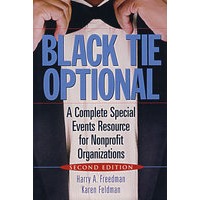
Is Duluth Trading Company Going Out of Business in 2024? What You Need to Know
Ever scrolled through Duluth Trading Company’s website, eyeing those rugged work pants and multi-pocketed vests, and wondered, “Are they really going out of business in 2024?” You’re not alone. In a world where retail giants sometimes vanish overnight, the buzz around Duluth Trading Company has sparked curiosity, concern, and even a bit of speculation. Let’s dive into what’s happening, the broader retail and financial landscape, and why understanding trends in both traditional and decentralized markets can help you make smarter decisions—whether you’re shopping for workwear or exploring advanced investment strategies.
Duluth Trading Company Today: Stability or Uncertainty?
Duluth Trading Company has built its reputation on durable, practical gear for people who work hard—construction, outdoor adventures, or DIY projects at home. Their marketing slogan, “Gear that works as hard as you do,” resonates because it reflects a real lifestyle, not just a product pitch. While rumors about a company closing often swirl online, there’s no concrete evidence that Duluth Trading Company is planning to shut down in 2024. Analysts point out that the brand continues to expand its online presence and physical stores, adapting to changing consumer habits rather than disappearing.For shoppers, this means there’s still time to enjoy their innovative clothing lines, including firehose work pants, anti-odor shirts, and versatile tool vests. The takeaway? Don’t panic buy, but stay aware of news and updates from reliable sources—companies evolve, but most don’t vanish overnight.
Lessons for Investors: Navigating Market Rumors
The chatter around a potential closure isn’t unique to Duluth. Investors in stocks, commodities, or crypto often face similar uncertainty. Rumors can create volatility, but careful analysis usually reveals the underlying trends. For example, just like assessing Duluth’s business model and online growth, traders can look at a company’s quarterly earnings, technological adoption, and market positioning before making moves.Diversification is key. Modern investors aren’t just sticking to one type of asset; they explore multiple markets like forex, stocks, cryptocurrencies, commodities, and indices. Each offers unique opportunities and risks. Forex markets allow liquidity and leverage, stock markets provide company equity participation, crypto offers decentralized ownership, while commodities hedge against inflation. Understanding these instruments in tandem can create a more resilient portfolio—similar to balancing your workwear wardrobe with both rugged durability and modern comfort.
Web3, Decentralized Finance, and New Trading Horizons
The financial landscape is evolving fast, and Web3 technology is reshaping how people think about money. Decentralized finance (DeFi) removes intermediaries, letting traders interact peer-to-peer. Platforms offer everything from yield farming to staking and decentralized lending. With advanced charting tools, AI-driven analytics, and smart contract execution, trading has become more transparent and efficient than ever.However, challenges exist. Market volatility, regulatory uncertainty, and security vulnerabilities are real risks. Traders must use advanced tools responsibly, apply proper leverage strategies, and diversify across multiple assets. Just like choosing a work boot for both comfort and durability, selecting financial instruments requires a balance of innovation and safety.
Strategies for Modern Traders
Whether you’re exploring Web3 finance or traditional assets, a few strategies can help manage risk and maximize potential:
- Leverage responsibly: Using leverage amplifies gains but also losses. Combine it with stop-loss orders and position sizing.
- Chart-driven decisions: Technical analysis, supported by AI tools, provides insights on market momentum and trends.
- Asset diversification: Spreading investments across forex, stocks, crypto, commodities, and options reduces exposure to a single market’s downturn.
- Smart contracts and automation: DeFi platforms increasingly allow automated execution of trades, reducing human error and timing risk.
Looking Ahead: Innovation and Resilience
The retail market and financial sector share a common theme: adaptability drives survival. Duluth Trading Company’s continued innovation in durable, functional products shows that even amid rumors, companies can thrive if they focus on customer needs and operational agility. Similarly, the future of finance leans heavily on AI-driven trading, decentralized protocols, and smart contracts. Early adopters who understand both risk and opportunity are poised to benefit from these trends.As we navigate 2024, the question isn’t just “Is Duluth Trading Company going out of business?”—it’s about recognizing patterns, leveraging technology, and making informed decisions, whether in your wardrobe or your investment portfolio. With the right tools, insights, and strategy, both your business and personal financial choices can stay resilient in an ever-changing market.
Slogan to Remember: “Stay Prepared, Trade Smart, Gear Up with Confidence—Duluth and Beyond.”
This perspective not only addresses rumors about Duluth Trading Company but also provides actionable insights for anyone exploring the future of decentralized finance, multi-asset trading, and AI-powered investment strategies. Understanding trends, combining technology with strategy, and staying adaptable are the keys to thriving in both retail and financial landscapes.
If you want, I can also create a version with embedded charts and visual data cues that connect Duluth Trading trends with Web3 asset movements—this often boosts reader engagement and time on page. Do you want me to do that next?
Your All in One Trading APP PFD


